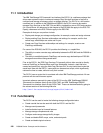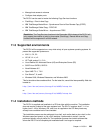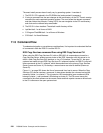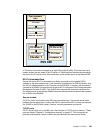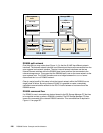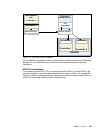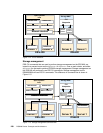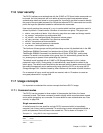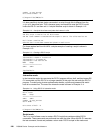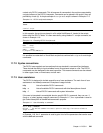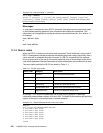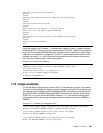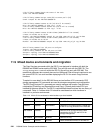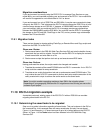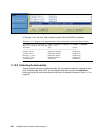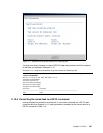
240 DS8000 Series: Concepts and Architecture
csadmin op_copy_services
exit status of dscli = 0
C:\Program Files\IBM\dscli>
It is also possible to include single commands in a script, though this is different from the
script mode described later. This is because every command that uses the DS CLI would
invoke the DS CLI and then exit it. A simple Windows script is shown in Example 11-2.
Example 11-2 A script to list all users and place their names in a file
@ECHO OFF
rem This script is used to list all DS CLI users
rem The lsuser command is executed and the output is sent to file called userlist.txt
dscli lsuser > userlist.txt
echo The user list has been created and placed in userlist.txt
For those readers familiar with UNIX, a simple example of creating a script is shown in
Example 11-3.
Example 11-3 Creating a DS CLI script
/opt/ibm/dscli >echo “dscli lsuser > userlist.txt” > listusers.sh
/opt/ibm/dscli >chmod +x listusers.sh
/opt/ibm/dscli >./listusers.sh
/opt/ibm/dscli >cat userlist.txt
Name Group
=========================
admin admin
/opt/ibm/dscli>
Interactive mode
In the interactive mode, the user starts the DS CLI program within a shell, and then issues DS
CLI commands until the DS CLI is no longer needed. At this point the user exits the DS CLI
program. To avoid having to enter authentication details, a profile and password file would
have to be created first. The use of the interactive mode is shown in Example 11-4.
Example 11-4 Using DS CLI in interactive mode
C:\Program Files\IBM\dscli>dscli
dscli> lsuser
Name Group
=========================
admin admin
csadmin op_copy_services
dscli> exit
exit status of dscli = 0
C:\Program Files\IBM\dscli>
Script mode
The script mode allows a user to create a DS CLI script that contains multiple DS CLI
commands. These commands are performed one after the other. When the DS CLI executes
the last command, it ends and presents a return code. DS CLI scripts in this mode must



